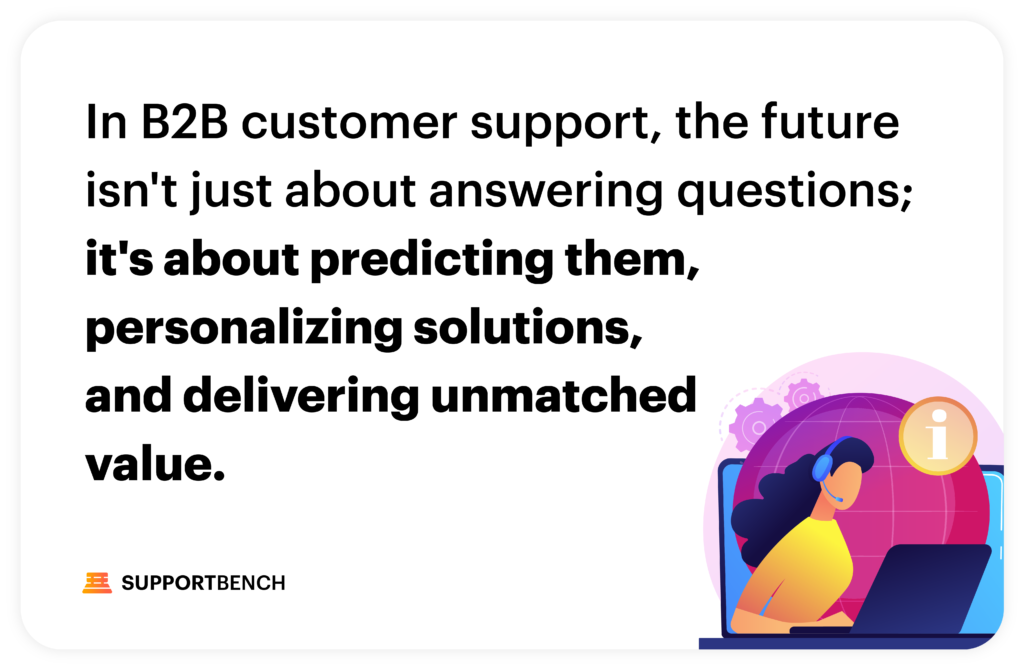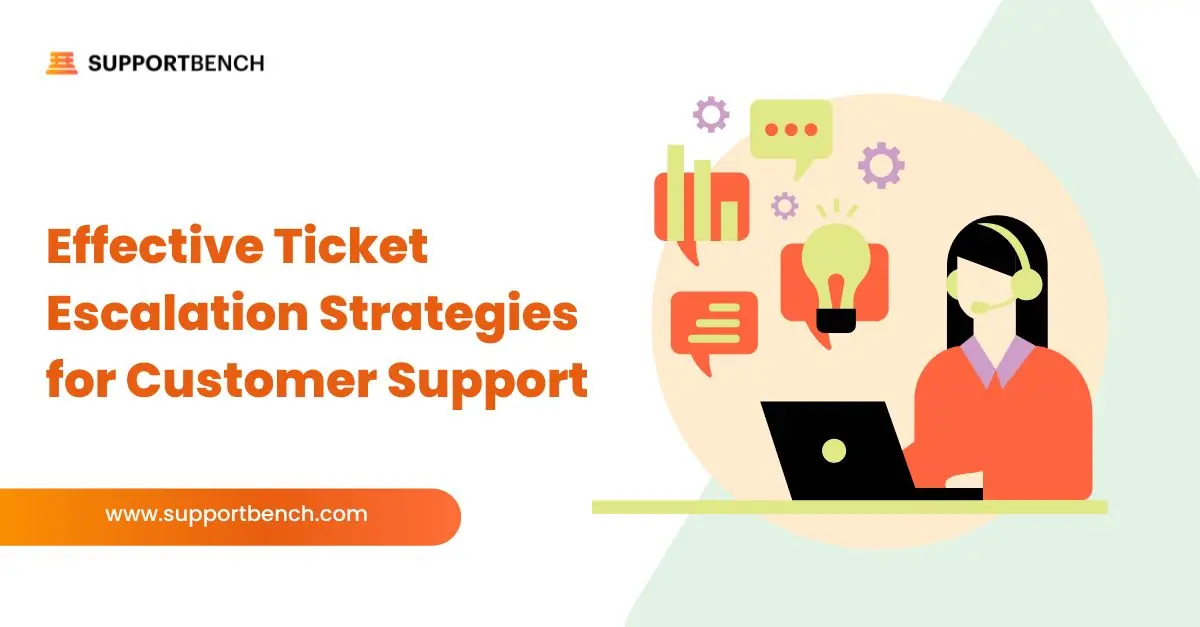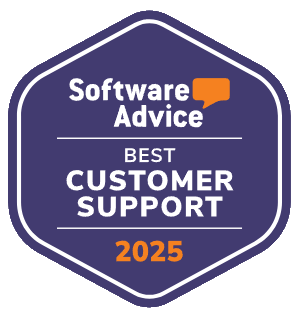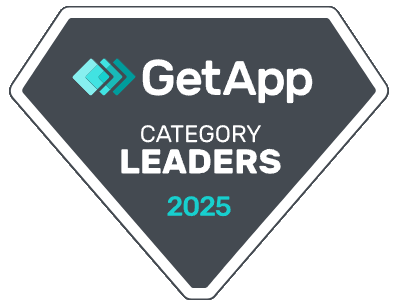In the rapidly evolving world of customer support, keeping up with the latest technologies and best practices is imperative. A recent study by Gartner revealed that 89% of companies compete primarily on customer experience. Yet, the majority of frontline customer support engineers still grapple with cumbersome, outdated systems that hamper their performance. Such clunky systems not only hinder efficiency but also dampen the morale of your team. In the quest for efficient customer support, the focus is gradually shifting towards new, fresh platforms that are embedded with cutting-edge AI integrations and are specifically tailored for the B2B market. Newer Support platforms specifically built for the B2B exemplify this revolutionary shift.

Here are 7 ways to equip your team with the best tool and practices:
1. Embrace AI-Powered Support Systems
Artificial Intelligence (AI) in customer support isn’t just a trend; it’s a game-changer and now a necessity. With features like AI-driven summaries, sentiment analysis, intent detection, and emotional scoring, frontline agents can handle queries more efficiently and effectively. AI not only reduces response times but also increases the accuracy of support, making it an indispensable asset in customer support systems.
It can feel daunting to approach this, so let’s start with the Basics. Introduce your team to AI by providing hands-on training sessions; allowing them to understand and harness the power of AI. To make it easier to consume, try to use layman terms, visuals, and demonstrations to breakdown AI’s complex operations.
Because technology evolves constantly, it’s so helpful to provide monthly training sessions in the form of refresher courses or quarterly workshops can ensure your team stays up-to-date with AI advancements.
For ease of learning, use simulations or real case studies to demonstrate AI in action. It can be so helpful to role-play whereby real-life customer queries are simulated in order to assist in a deeper understanding of how AI can best be used.
Since AI applications vary significantly across sectors, invest in a tailored AI tool with modules specific to your industry. Afterall, a customized approach will yield maximum benefits.
2. Dynamic Service Level Agreements (SLAs)
A ‘one-size-fits-all’ SLA no longer suffices. We now know fixed SLAs can often be out-of-sync with dynamic customer needs. Dynamic SLAs bring flexibility and relevance. It is these dynamic SLAs, like those offered by newer Customer Support platforms, that can be tailored based on what’s happening within a case. Such flexibility ensures customers receive timely and relevant support, enhancing their overall experience.
You can start by helping your team understand why dynamic SLAs matter. Use data-driven presentations showing customer satisfaction rates with static vs. dynamic SLAs to show them the difference. Interactive sessions where team members can suggest SLA modifications based on hypothetical scenarios can boost their confidence with use. Afterall, we’re all so use to static SLA’s; it’s pretty exciting to see the shift in ease of workflow when you have the full power of dynamic SLA’s.
Customers can also help to inform and shape your SLA’s through their feedback. So, continuously incorporate customer comments to improve them. Direct feedback from the frontline can be invaluable.
If you’re using a powerful Support tool like Supportbench, you can use their integrations and advanced feature sets to automatically adjust SLAs based on incoming ticket volumes and ticket types.
3. Incorporate Data-Driven Decision Making
Empowering your team with data-driven insights ensures they are not shooting in the dark. Tools like KPI scorecards and 360-degree customer overviews provide a holistic understanding of customer behaviors and preferences. And making informed decisions based on actionable insights can greatly elevate the quality of your support.
But it’s still important to train your team to interpret and use this data. Workshops on understanding data analytics, trends, and how to convert these into action plans can be invaluable. Data visualization tools can be extremely helpful so, train your team on tools that transform raw data into intuitive visualizations, aiding quicker and more informed decisions.
4. Integrated Multi-Channel Support
We know customers interact with you through multiple channels. According to a report by Aberdeen Group, companies with strong omnichannel customer engagement strategies retain an average of 89% of their customers compared to 33% for companies with weak strategies. Certainly, unified support ensures a consistent experience.
It’s important to ensure agents can handle queries across different channels. So, equip your team with skills to handle customer queries on social media, emails, chats, and more. It’s so beneficial to use unified platforms like Supportbench that consolidate multiple channels, making it easier for agents to track and respond. Having consolidation features will simplify the process for agents, enhancing efficiency. Using one of these more modern support platforms ensures that you have full integration with your CRM. This enables your agents to have a 360-degree customer view regardless of the channel.
5. Leverage Chatbots and Automation
As Bill Gates once remarked, “The first rule of any technology used in a business is that automation applied to an efficient operation will magnify the efficiency.” Chatbots, especially those powered by solutions like ChatGPT, handle repetitive tasks, freeing up agents to tackle complex issues.
First and foremost, you need to be able to identify repetitive tasks. That way, you can determine which tasks can be automated. Regular surveys can help in identifying tasks that can be automated. If your agents can provide you with a feedback loop on chatbot performance, that can be highly valuable. Agents can then report chatbot shortcomings and help in their continual refinement. This is also an example of human-AI collaboration. Training your agents to work in tandem with bots will yield optimal results. And workshops emphasizing the idea that chatbots complement, not replace, human agents can enhance team morale. It is here where you can ensure your team understands where chatbots excel and where human intervention is indispensable. A balance is essential. This balance will help establish clear protocols for when and how a conversation should be escalated from a chatbot to a human agent.
6. Personalized Customer Support
Personalization is no longer a luxury but a necessity. According to Epsilon research, 80% of consumers are more likely to make a purchase from a brand that offers personalized experiences.
Using a modern support tool like Supportbench can help to gather customer data. You will be able capture customer behavior, purchase history, and preferences can help agents personalize solutions. Even with the best tool, you still need to train your agents to discern customer needs. Soft skills training emphasizing the importance of listening will enable agents to identify unstated customer needs and turn your support department from reactive to proactive. And of course, using advanced AI tools can predict a customer’s mood based on past interactions and will equip your team with such insights to tailor their approach for an optimum customer experience.
7. Prioritize Continuous Learning
The only constant in technology is change. For customer support teams to remain relevant, continuous learning is essential. You must keep your team updated with the latest tools and best practices. It can be daunting to implement a new tool, but if you know it’s better and will optimize your support department, then it’s vital to your organization to make this shift. So that you and your team keep up with industry specific trends, you can organize sessions with industry experts to provide fresh perspectives on best practices. For team building, you can encourage participation in seminars and workshops. This can offer your team networking opportunities and exposure to global best practices. Lastly, you will benefit from creating an environment where team members share insights and learnings, fostering a culture of continuous growth.
Bringing it all together
The advancements discussed, from AI-powered support to hyper-personalized experiences, highlight the current zeitgeist of the customer support world. These aren’t mere buzzwords or fleeting trends; they represent a foundational shift in how we perceive and deliver customer support. No longer is it enough to merely respond to issues; in today’s B2B environment, proactivity, foresight, and genuine personalization are the gold standards.
Adopting these strategies isn’t about ticking off boxes on a checklist. It’s about internalizing a philosophy that places the customer at the heart of every decision, every strategy, and every interaction. And while these practices are transformative, having the right tools and platforms in place, such as Supportbench, is vital. With its revolutionary features, it stands out as the beacon guiding enterprises towards an era where customer support is not just a department but a critical driver of growth. By integrating cutting-edge technologies and focusing on continuous improvement, Supportbench is setting the gold standard for what efficient, effective, and empathetic customer support looks like in the modern age.
Embrace the change. Be the vanguard of this new revolution. Because in the realm of B2B customer support, the future is not just about answering questions. It’s about predicting them, personalizing solutions, and delivering unparalleled value. The future is now, and with platforms like Supportbench leading the way, it’s a promising horizon indeed.
Sources:
Gartner. (2019). Gartner Customer Experience Survey.
Aberdeen Group. (2017). Omnichannel Customer Care: How to Delight Your Customers at Every Touchpoint.
Epsilon. (2018). The Power of Me: The Impact of Personalization on Marketing Performance.















